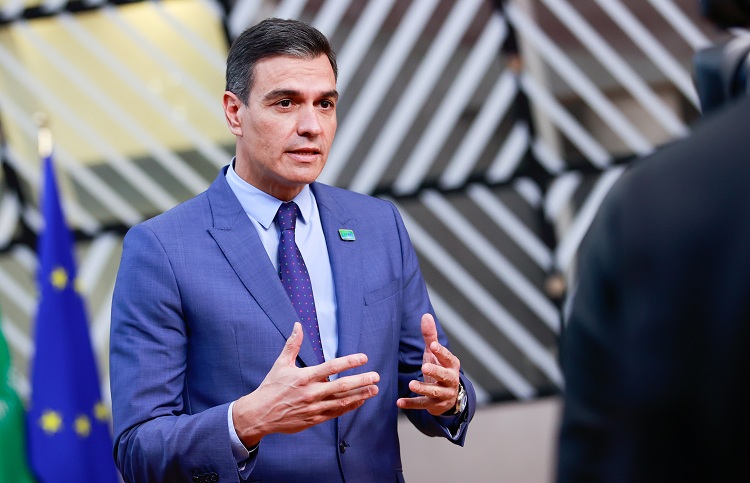The Diplomat
The President of the Government, Pedro Sánchez, participated yesterday in Brussels in the informal European Council on the situation in Russia and Ukraine, in the course of which the EU once again defended “all diplomatic formats to de-escalate” the crisis and the High Representative, Josep Borrell, announced the imminent presentation of a “very tough package” of sanctions against Moscow.
At the end of the meeting – which was convened the day before by the President of the European Council, Charles Michel, taking advantage of the presence of all the European leaders in Brussels on the occasion of the EU-AU Summit – Pedro Sánchez highlighted the “absolute unanimity” shown both by “the European Union and the Member States” and within “the Transatlantic Alliance” in relation to “the response being given to Russia on this crisis”.
During the extraordinary summit, according to Sánchez, the European leaders stressed “the need to continue with diplomacy, with the open dialogue with Russia, in particular through the different formats, whether the OSCE or the Normandy format, and, of course, the dialogue maintained by the United States”. He also stressed “the firmness and solidarity with Ukraine and, of course, the commitment of the EU as a whole and of the Member States to the territorial integrity of Ukraine and also, logically, to its national sovereignty”.
After the meeting, which lasted an hour and in which the European leaders analyzed the latest developments in Ukraine, Charles Michel told the press that the EU remains “firm and united” in the defense of European values and defended “all possible diplomatic formats to de-escalate” the situation.
For his part, the High Representative for Foreign and Security Policy, Josep Borrell, declared that, although the EU continues to “concentrate all its efforts on diplomatic activity,” European external action has already prepared a “complete” and “very tough” package of sanctions against Russia. “As High Representative, I am ready to present this package to the Council, because it is the Council that has the responsibility and the ability to approve sanctions,” he announced.
“If there is any aggression, I will immediately convene the Foreign Affairs Council to propose the package of sanctions and I am sure that, even if unanimity is required, the Council will approve them,” he added. “Europe is completely united on this,” the high representative assured. “Sanctions require unanimity of the member states, but today, in the Council of the European Union, everyone has insisted on agreeing and this unity is there to be used,” he concluded. Asked whether this unanimous support includes Hungary, he replied: “I said all”.
Borrell also participated yesterday in the second and last day of the meeting of the North Atlantic Council of NATO defense ministers – including the Spanish minister, Margarita Robles – to discuss, among other issues, the situation in Ukraine. At this meeting, the ministers announced the deployment of new ground, air and maritime forces on the eastern flank of the Alliance (in Romania and Bulgaria, in addition to those already operating in Poland and the Baltic countries) for “preventive” reasons and in order to “further strengthen the defensive and deterrent posture to respond to all contingencies”. In this regard, Margarita Robles declared on Wednesday in Brussels that Spain does not plan, “in principle”, to reinforce its military presence in the area.







